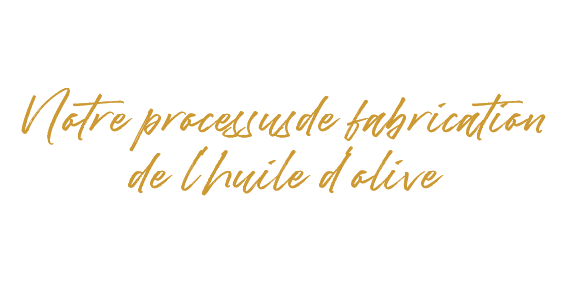The HarvestIt is done by hand. The picking is done in the fall when the olives reach maturity. The olives must be completely healthy and therefore without having been damaged by parasites (olive fly) which in the event of attacks with more than 30% of olives will surely produce defective oils and therefore downgraded oils and in the most serious cases, "Lampante" oils. The notion of time is essential in the manufacture of olive oil, in fact it must not be elapse more than 8 hours (even much less when it is very hot) between picking the fruit (olives) and trituration (production of olive oil). Trituration (production of olive oil) by several stages: Stripping This stage allows the olives to be gently separated from all the impurities which could alter the crushing of the olives: leaves, branches and other residues related to the picking of the olives. Washing Olives are washed by rapid soaking in a circulating tank of fresh water. Grinding This is done using different types of grinders depending on the quality and maturity of the olives. Mixing The paste is homogenized to allow the droplets of oil to come together in a film in order to facilitate the future separation of the phases. quality of the olive oil produced. All the polyphenols will thus be preserved in the oil and will give the mark of a very high quality oil (impossible to obtain by traditional means). Extraction This is done by centrifugation. It makes it possible to separate the oil, the water and the pomace (by-products) thanks to their differences in density. At Aulisua, the extraction is done under vacuum and cold below 27°C. Final centrifugation The oil passes through a vertical axis centrifuge in order to eliminate the last traces of water. It is then stored in stainless steel tanks.LaboratoryEach production of olive oil is controlled internally by our laboratory. These controls make it possible to accurately classify the quality of the oil produced. Knowing that, for the same quality of olives, the slightest error in the process can lead to the declassification of the olive oil produced. If all the rules (however simple) are not respected, the organic substance of the fruits begins to s oxidize and defective oils will be produced, and therefore downgraded oils and in the most serious cases, Lampante oils will be produced. Bottling In order to preserve all the aromas, the oil is bottled in a controlled atmosphere away from all external pollutants . The bottles are specially designed to keep the olive oil in the best conditions until the final consumer.




